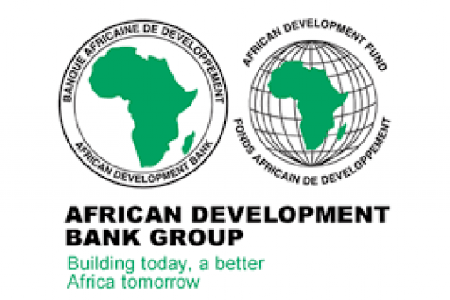Photo caption: AfDB logo
Nigeria spent 4.1 per cent of its Gross Domestic Product on debt servicing in 2024, according to the latest Country Focus Report by the African Development Bank.
The figure represents an increase from 3.7 per cent recorded in 2023 and reflects the rising cost of borrowing amid tightening global financial conditions and high domestic interest rates.
According to the report, the increase in debt service obligations was driven by higher interest payments on government securities and fresh borrowings to finance the budget deficit.
It added that the increased expenditure was largely driven by debt servicing costs, which consumed a larger share of public finances despite recent fiscal reforms. Public debt rose sharply to 52.3 per cent of GDP in 2024, up from 41.5 per cent in 2023, largely due to increased financing needs and a weaker naira.
The Federal Government raised a total of $3.3bn in new debt in 2024, including $2.2bn from Eurobond issuance and the remainder from multilateral lenders.
The report further disclosed that the debt servicing-to-federal government revenue ratio increased from 76.8 per cent in 2023 to 77.5 per cent in 2024, indicating that over three-quarters of government revenue went into paying debt obligations.
According to the report, “Debt servicing increased to 4.1 per cent of GDP from 3.7 per cent in 2023. The debt servicing-to-federal-government-revenue ratio stood at 76.8 per cent in 2023, rising slightly to 77.5 per cent in 2024.”
The AfDB warned that this trend could limit the government’s ability to invest in critical infrastructure and social development. Debt service obligations gulp a significant portion of Nigeria’s fiscal resources, the report stated, noting that limited fiscal space is constraining the capacity to meet pressing development priorities.
Despite a moderate decline in the fiscal deficit—from 4.0 per cent of GDP in 2023 to 3.9 per cent in 2024—pressures on public finance remain elevated.
The government’s reform programme, including the removal of fuel subsidies and unification of the exchange rate, has led to improved revenue mobilisation, but the gains are yet to match the scale of spending requirements.
Nigeria’s tax-to-GDP ratio remains among the lowest in the region at 5.2 per cent, underscoring persistent weaknesses in domestic revenue mobilisation. The report identified the large informal economy, which accounts for 68 per cent of national output, and informal employment exceeding 90 per cent, as major barriers to expanding the tax net.
It also highlighted the need to broaden the tax base and improve compliance through digital tax systems and stronger institutional capacity. Although non-tax revenues, particularly oil-related earnings, rose in 2024 following the full deregulation of the fuel market, the AfDB noted that Nigeria still faces a significant development financing gap.
The report estimated the country’s annual financing needs at $47.6bn, with a shortfall of $31.5bn, particularly for infrastructure, innovation, and social services under the Sustainable Development Goals.
Government expenditure stood at 15.5 per cent of GDP in 2024, far below the sub-Saharan African average of 21.4 per cent. Education and health sectors continued to suffer from underfunding, with allocations of 7.9 per cent and 5.3 per cent, respectively.
These figures, the report warned, fall short of international benchmarks and limit progress on human capital development. While the economy expanded by 3.4 per cent in 2024, driven by the services sector and a modest increase in oil output, the report projects that growth will moderate to 3.2 per cent in 2025 and 3.1 per cent in 2026.
It attributed the expected slowdown to global uncertainties, including weaker oil prices and trade tensions. The AfDB called for a continuation of economic and structural reforms to stabilise public finances and reduce the debt burden.
It recommended increased investment in infrastructure, education, and healthcare, alongside measures to enhance tax administration, streamline public expenditure, and attract private capital through innovative financing instruments.



